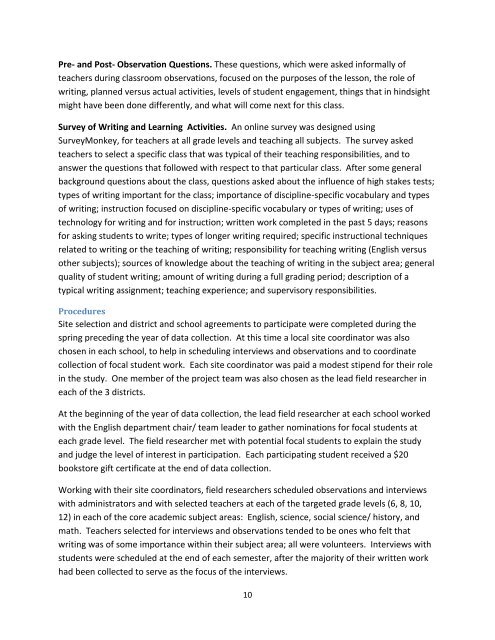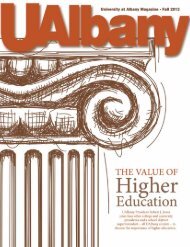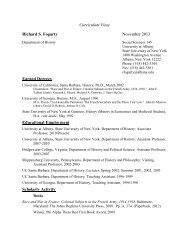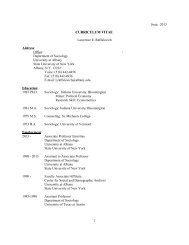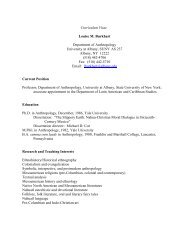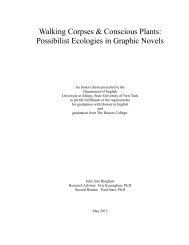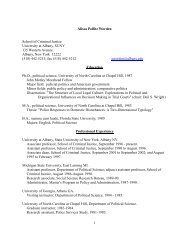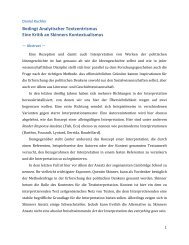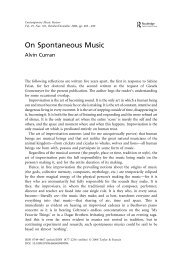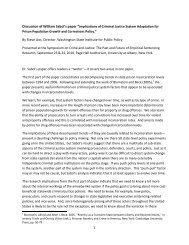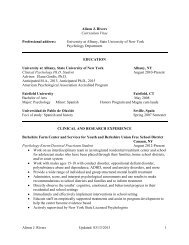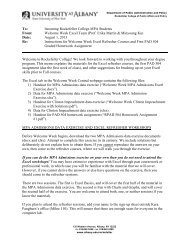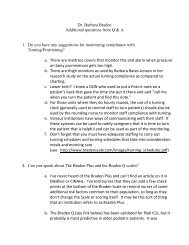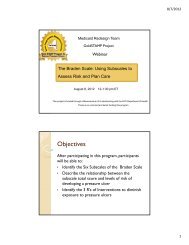The National Study of Writing Instruction - University at Albany
The National Study of Writing Instruction - University at Albany
The National Study of Writing Instruction - University at Albany
Create successful ePaper yourself
Turn your PDF publications into a flip-book with our unique Google optimized e-Paper software.
Pre- and Post- Observ<strong>at</strong>ion Questions. <strong>The</strong>se questions, which were asked informally <strong>of</strong><br />
teachers during classroom observ<strong>at</strong>ions, focused on the purposes <strong>of</strong> the lesson, the role <strong>of</strong><br />
writing, planned versus actual activities, levels <strong>of</strong> student engagement, things th<strong>at</strong> in hindsight<br />
might have been done differently, and wh<strong>at</strong> will come next for this class.<br />
Survey <strong>of</strong> <strong>Writing</strong> and Learning Activities. An online survey was designed using<br />
SurveyMonkey, for teachers <strong>at</strong> all grade levels and teaching all subjects. <strong>The</strong> survey asked<br />
teachers to select a specific class th<strong>at</strong> was typical <strong>of</strong> their teaching responsibilities, and to<br />
answer the questions th<strong>at</strong> followed with respect to th<strong>at</strong> particular class. After some general<br />
background questions about the class, questions asked about the influence <strong>of</strong> high stakes tests;<br />
types <strong>of</strong> writing important for the class; importance <strong>of</strong> discipline-specific vocabulary and types<br />
<strong>of</strong> writing; instruction focused on discipline-specific vocabulary or types <strong>of</strong> writing; uses <strong>of</strong><br />
technology for writing and for instruction; written work completed in the past 5 days; reasons<br />
for asking students to write; types <strong>of</strong> longer writing required; specific instructional techniques<br />
rel<strong>at</strong>ed to writing or the teaching <strong>of</strong> writing; responsibility for teaching writing (English versus<br />
other subjects); sources <strong>of</strong> knowledge about the teaching <strong>of</strong> writing in the subject area; general<br />
quality <strong>of</strong> student writing; amount <strong>of</strong> writing during a full grading period; description <strong>of</strong> a<br />
typical writing assignment; teaching experience; and supervisory responsibilities.<br />
Procedures<br />
Site selection and district and school agreements to particip<strong>at</strong>e were completed during the<br />
spring preceding the year <strong>of</strong> d<strong>at</strong>a collection. At this time a local site coordin<strong>at</strong>or was also<br />
chosen in each school, to help in scheduling interviews and observ<strong>at</strong>ions and to coordin<strong>at</strong>e<br />
collection <strong>of</strong> focal student work. Each site coordin<strong>at</strong>or was paid a modest stipend for their role<br />
in the study. One member <strong>of</strong> the project team was also chosen as the lead field researcher in<br />
each <strong>of</strong> the 3 districts.<br />
At the beginning <strong>of</strong> the year <strong>of</strong> d<strong>at</strong>a collection, the lead field researcher <strong>at</strong> each school worked<br />
with the English department chair/ team leader to g<strong>at</strong>her nomin<strong>at</strong>ions for focal students <strong>at</strong><br />
each grade level. <strong>The</strong> field researcher met with potential focal students to explain the study<br />
and judge the level <strong>of</strong> interest in particip<strong>at</strong>ion. Each particip<strong>at</strong>ing student received a $20<br />
bookstore gift certific<strong>at</strong>e <strong>at</strong> the end <strong>of</strong> d<strong>at</strong>a collection.<br />
Working with their site coordin<strong>at</strong>ors, field researchers scheduled observ<strong>at</strong>ions and interviews<br />
with administr<strong>at</strong>ors and with selected teachers <strong>at</strong> each <strong>of</strong> the targeted grade levels (6, 8, 10,<br />
12) in each <strong>of</strong> the core academic subject areas: English, science, social science/ history, and<br />
m<strong>at</strong>h. Teachers selected for interviews and observ<strong>at</strong>ions tended to be ones who felt th<strong>at</strong><br />
writing was <strong>of</strong> some importance within their subject area; all were volunteers. Interviews with<br />
students were scheduled <strong>at</strong> the end <strong>of</strong> each semester, after the majority <strong>of</strong> their written work<br />
had been collected to serve as the focus <strong>of</strong> the interviews.<br />
10


